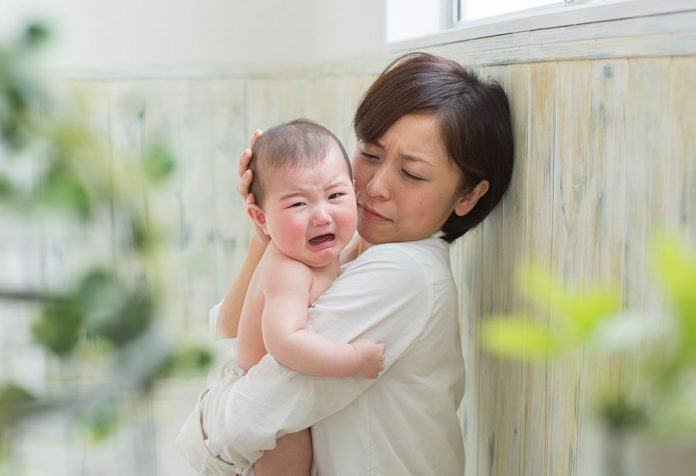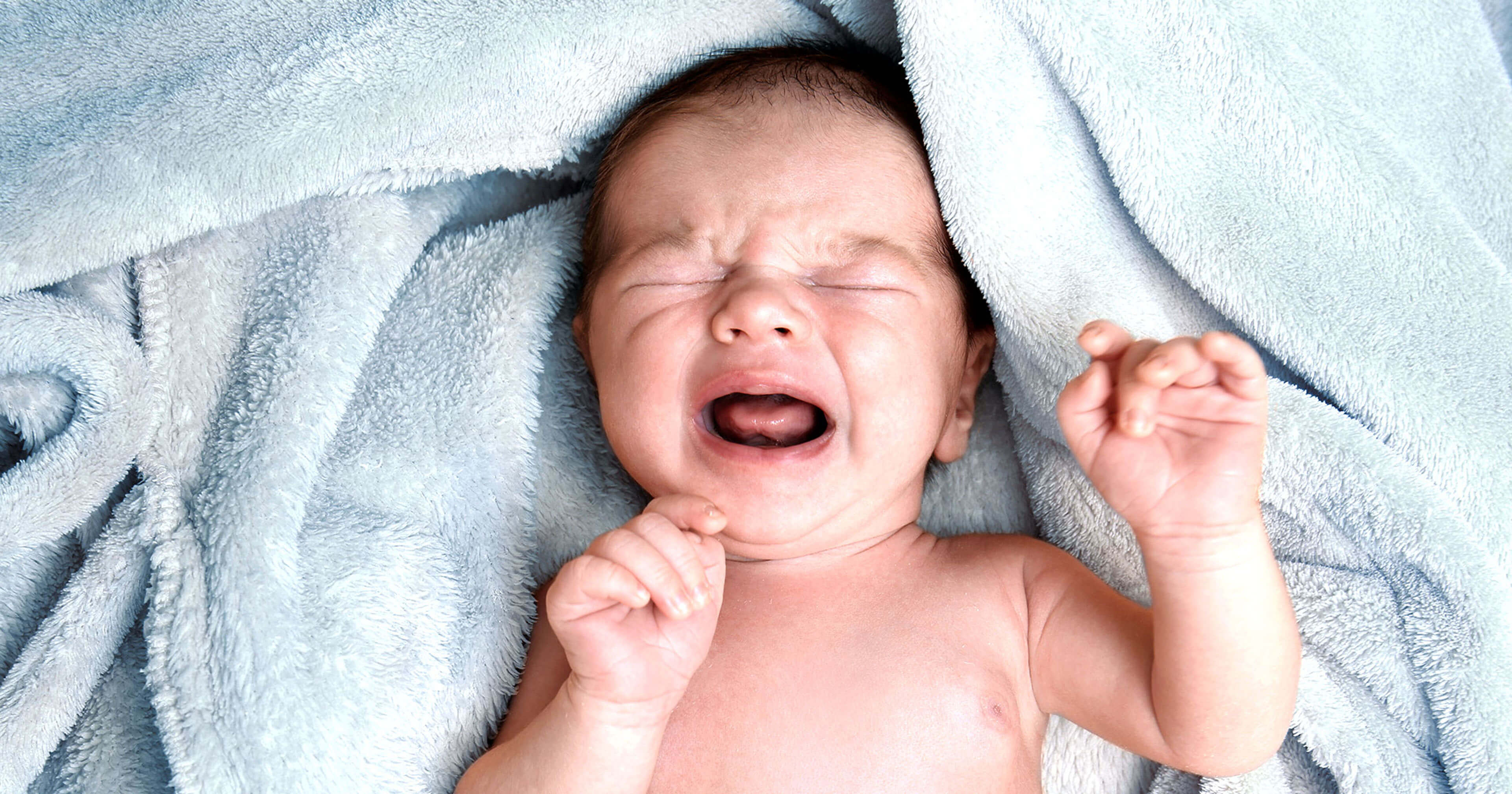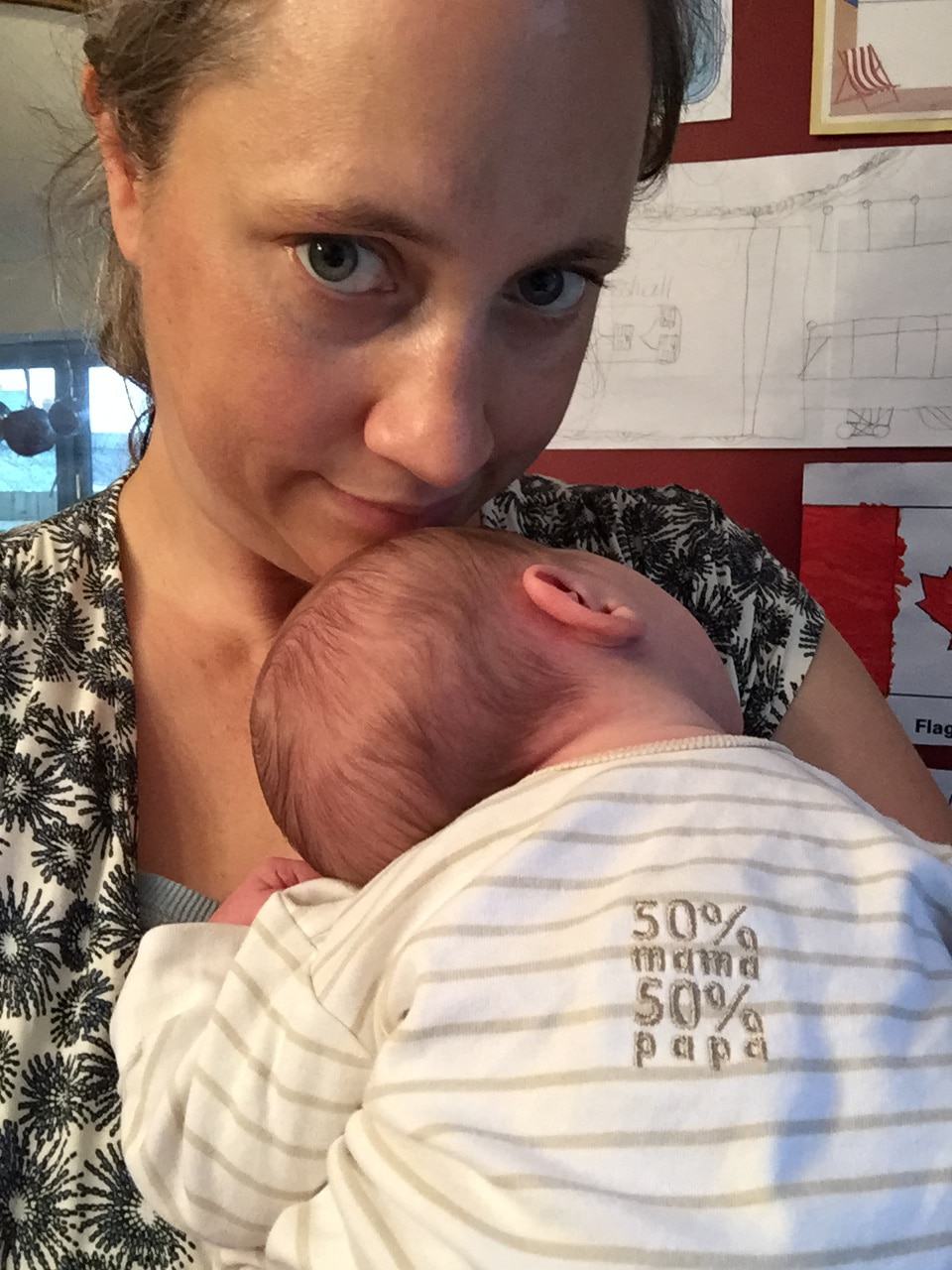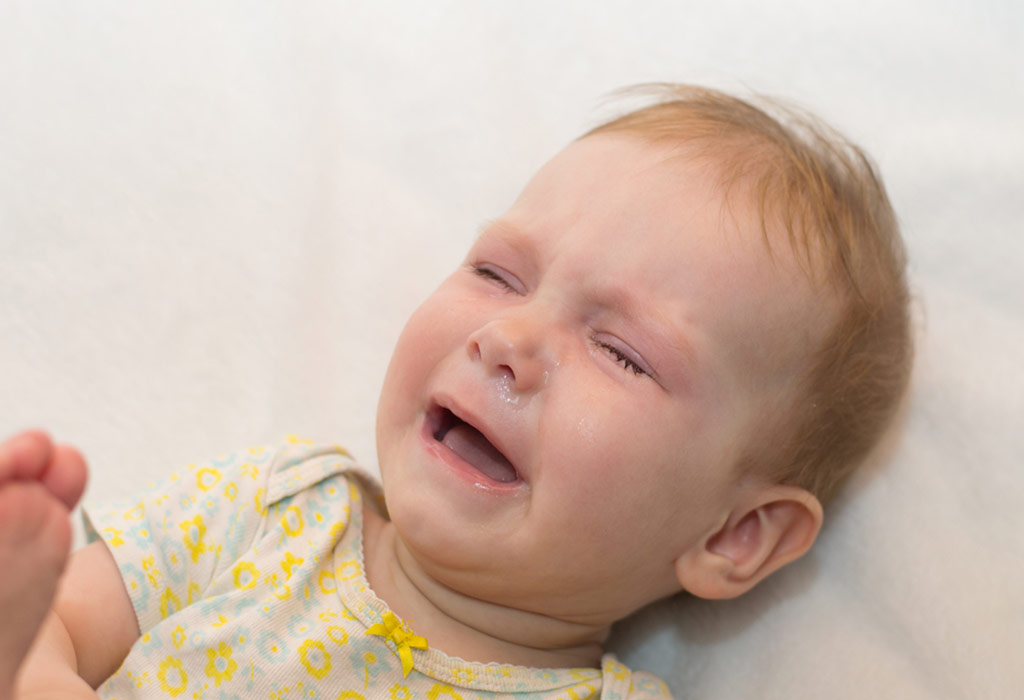 Hoarse Voice in Babies - Causes & Treatment
Hoarse Voice in Babies - Causes & TreatmentBaby Hoarse Voice: Causes and Treatments So far, you've probably only heard rude voices from older children or full-growing adults. You know the sound — that deep and passionate rasp that comes during a particularly nasty breast infection or after yelling to talk to friends all night at a strong concert. Now you're listening differently. How could such a coarse and tearing voice emerge from your warm and polite baby's throat? It is surprising and a bit worrying to hear the typical sweet coos of your baby replaced by a sniffy voice. But try not to panic because there are many reasons your baby can have a hard voice and most of them are quite easy to handle. First, it is important to understand how the voice works to understand why the coughing baby's voices happen. Voice Mechanics Squeeze your fingers slightly against the front of the throat and sing a song. Do you feel anything vibrating? That's the exhaled air that comes out of your lungs, in your larynx and through your vocal cords or folds. As the air passes through the narrow opening (glotis) between the almost closed vocal folds, the air vibrates and the voice occurs. It happens when the vocal folds do not vibrate normally. So what can affect the normal operation of vocal folds? There are some things, and identify which is at stake can help treat the cause. Time can help you diagnose rudeness. If your baby sounds rough after prolonged tears, it can blame the crying. Ditto for a cough or cough: a post-nasal drip and phlegm can affect those vocal folds and lead to thread. Here are a few reasons why rudeness could happen and how to handle it: Excessive crying You're most likely to put it on your baby overexerciting her vocal cords. Think of the last sporting event or strong concert that attended. How did your voice sound after all the acclaim or yelling you did? Similarly, a baby is very likely to be over-use. Of course you will want when they are crying excessively, but it is not always easy to remove the reason for those tears. Excessive crying can happen if you have a baby who hates (necessary) car walks, if you are working on, or simply if your baby is having a day off when they are. Make your best effort to soothe the crying, offer a lot of lactation time or a , and give your little one the opportunity to rest your vocal cords and the voice scrambles should clarify. Sickness, and cold are caused by viruses that inflame those vocal folds. The air flowing through inflated folds produces a sloping voice. Viruses like those that cause croup will have to run their course. Ditto for a cold. But it can offer relief by cleaning the nasal passages using aerosols, saline solutions and a . A fresh wet vaporizer or humidifier can be especially useful for chromup. Ask your doctor about other possible treatments if the disease or voice persists for more than a few days. Congestion Some infections lead to a buildup of mucus and may accompany the spongy or full nose. Additional secretions can drain into the throat and can affect the vocal folds. leads to the same problem. If your child is sick, talk to your doctor about possible treatments for the disease. If allergies are the cause that may require additional cleaning or changes to reduce dust, dander, or other allergens in your home. Reflux With , stomach acids are sent to the back of the throat. It is not surprising, this can also cause . Note that rudeness alone would be an unlikely sign of GERD. You would see other indications, such as eating difficulties, spitting, vomiting, crying with food or bad weight gain. This can sometimes be giving smaller and more frequent foods. Try to keep your baby straight after a feeding and burping them often. In more severe cases, medications or even surgery may be needed. Nodules of vocal cord Nodules or vocal cord cysts can be considered in a baby with a persistent threaded voice, especially if freshness is present from birth. These can be congenital, where the baby is born with something that affects her vocal cords, or caused by something that grows over time, such as a cyst or hemangioma. Recurrent respiratory papilomatosis (RPR) This rare condition causes recurrent benign growths such as the wart on the surface of the vocal folds or around them. Your medical team will decide whether to treat them with surgery. Tumore Tumor can be serious. The thickness that persists or comes with significant respiratory problems or eating difficulties must be addressed quickly. Injuries can also cause thread. The cautious acids or poisons that swallow, breathe or feed the placement of tubes, and body trauma (such as being in a car accident) can damage the tissue. If you suspect that your baby has ingested something you should not have, look for emergency care immediately. Congenital abnormality Sometimes a baby is born with a larynx deformity (voice box) that houses the vocal folds. In other cases, the larynx nerve responsible for moving the vocal folds is damaged. Again, discussing your baby's hard voice with your pediatrician can help identify any problems and create a treatment plan if necessary. Life may seem like an act of fast juggling when you are trying to balance the care of children, family life, work, and the inside and outside of life. So keeping track of your baby's rudeness can be difficult. If you feel that rudeness has been present for several days up to a week and is not improving, then get to your pediatrician. If you are not sure of the cause of rudeness or your baby is a newborn do not wait so long. The rudeness is a symptom that something is wrong. By treating the underlying cause of rudeness, you should be hearing the joyful gugling soon. Whatever the cause, take into account the following tips that can help your baby: It may be just a sniffing voice, but given the underlying causes, your baby may not feel superior. When you give them the extra love and care they are anxious, remember that you may need some too! Last medical review on October 26, 2020 related stories Read this next time
» » Momjunction believes in credibility and giving our readers access to authentic and evidence-based content. Each article passes through multiple revisions to ensure this. Our strict editorial guidelines allow us to quote only from reputed research institutions, academic journals, medically established studies, and highly regarded media and news agencies. If there is a lack of sufficient evidence, we make sure we mention it. If you discover any discrepancy in our content, we welcome you to . Your opinion helps us to serve you better and maintain a long-term relationship with the most important people in our business — you. What causes thick voice in babies and how to treat it?Image: iStock The term rude and dysphony are often used interchangeably, but technically they do not mean the same. Dysphonia could be defined as an alteration in voice production that affects social and professional communication in general. In contrast, rudeness is a thick or rough quality of the voice. The rudeness of the voice could be due to many reasons, the most common being a cold. But is the common cold the only cause of rudeness? Read this article from MomJunction to learn about the different causes of the flute voice in babies, how to treat it, and if you can prevent it. What causes a rude voice in babies? The most common cause of rudeness is the cold, and sometimes the cold with spongy cough and eyes. However, rudeness could also be due to many other reasons, such as:In rare cases, a baby may be born with respiratory abnormalities that may cause thread.[ Read: When to see a doctor? It's good to see a doctor if, along with thread, the baby:The doctor will diagnose the underlying cause of thread when inspecting the baby's throat. Blood and sputum tests may be needed to diagnose infections. Once the diagnosis has been confirmed, the doctor will prescribe the necessary treatment. How is voice treated in babies? Thin voice treatment depends on your cause, duration of thread, baby age, and overall health history, which the doctor will probably ask during a consultation. Depending on symptoms and overall health, you can be sent to a ENT specialist (otolaryngologist). An otolaryngologist will see the vocal folds to get a proper understanding of the probable cause of the grocery. Treatment is suggested once a confirmed diagnosis is made. However, the use of antibiotics for the treatment of thread is not recommended. The rudeness of the voice can be very irritating for the baby. You can relieve discomfort, before or during treatment, with the use of natural remedies. But as you plan to do so, consult your doctor about the effectiveness and safety of the remedy. Home Care for Hoarse Voice This is what you can do to prevent or reduce the thickness of the baby's voice: Grocery has many different causes, and therefore often requires interdisciplinary management. It is better to take quick measures to avoid complications. This includes the use of medicines or the application of home care practices, under pediatric guidance. Take the necessary precautions as suggested by the doctor, to prevent or treat rudeness. However, the voice snoops rarely leads to serious health problems, and your baby will start to feel better soon after treatment begins. Did you have to deal with the rudeness of the voice in your baby? Tell us how you handled it in the comments section below. References:HotpicksRelated ArticlesCopyright 2011 - 2021 .Copyright 2011 - 2021 All rights reserved. This information has only educational purposes and does not replace professional health services. See a medical professional for personalized consultation. Please read ours.

Hoarse Voice in Babies - Causes & Treatment
Baby Hoarse Voice: Causes and Treatments
Hoarse Voice In Babies: Causes And Home Care
Why Do Babies Cry: The Nine Different Sounds and What They Mean
Crying Baby Sounds and What They Mean | LoveToKnow
Can Crying Damage an Infants Vocal Cords?
Newborn Baby Hoarse Cry - Newborn baby
Newborn Baby Cry Sounds Hoarse - newborn baby
Croup in Babies and Toddlers: Coughing Sounds, Symptoms, Treatment
Your Baby is Sounding Hoarse: 6 Plausible Reasons
Does Hoarseness in Children Require Treatment? | babyMed.com
Newborn Baby Cry Sounds Hoarse - newborn baby
Sore Throat in Baby: Symptoms, Home Remedies, Seeking Help
Coughing Child? 3 Coughs to Know - UnityPoint Health
Why Do Babies Cry: The Nine Different Sounds and What They Mean
Is My Baby Crying Too Much? | UNC Health Talk
Premature baby's shrill cry may be sign of something deeper | Science | AAAS
Why can babies cry for hours, but one football match can leave a fan hoarse for days? - BBC Science Focus Magazine
Newborn Baby Hoarse Cry - Newborn baby
Do you know this important info about hoarseness in babies?
Causes and Treatment Of Baby Hoarse Voice | Moma Baby Etc
Silent reflux in babies: Everything parents need to know
Newborn Baby Cry Sounds Hoarse - newborn baby
Colic, Crying, And the PURPLE Period for Fussy Infants
Newborn cold: Symptoms, treatment, and risks
Baby Cries: What Your Baby Is Trying to Tell You | Mama Natural
Newborn Baby Cry Sound Effect - Newborn baby
Sore throat in babies & toddlers | BabyCenter
I Think My Baby's Got Reflux - La Leche League GB
Why is Your Baby Crying? Tips to Soothe Your Baby | by Pamela Gabriel | Medium
Can Crying Damage an Infants Vocal Cords?
7 Possible Reasons Your Baby Is Sounding Hoarse | Baby sounds, Baby, Toddler play
Baby Breathing Problem: Causes, SIgns & Treatment
Do you know this important info about hoarseness in babies?
Silent reflux in babies | Little Ones/babys-first-year-04-5b7c14ed46e0fb00504e54a6.png)
Your 4-Week-Old Baby: Development & Milestones
Newborne Breathing Noises: Whats Normal & What's Not
Hoarse Voice In Babies: Causes And Home Care
 Hoarse Voice in Babies - Causes & Treatment
Hoarse Voice in Babies - Causes & Treatment































/babys-first-year-04-5b7c14ed46e0fb00504e54a6.png)


Posting Komentar untuk "baby's cry sounds hoarse"